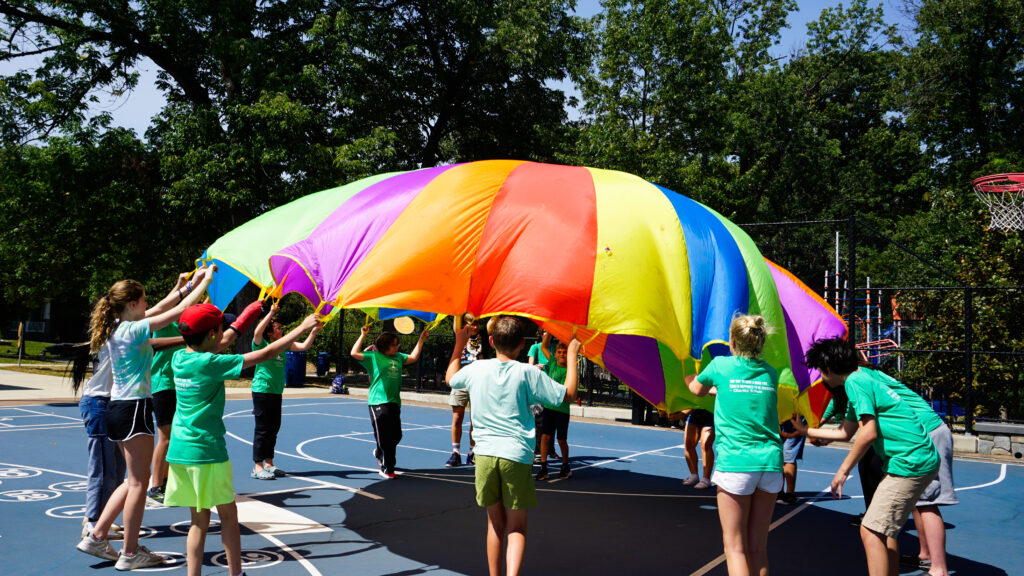Suggestions on Talking to Your Neurodivergent Child After School
By: Paige Lichens, MS, C-IAYT | Counselor and Movement and Mindfulness Teacher
“We can create a more nurturing environment by surrounding ourselves with love and support, learning and becoming friends with our minds, and continuing to dismantle harmful social norms in ourselves and in our networks.”― Chloé Hayden, Different, Not Less: A Neurodivergent’s Guide to Embracing Your True Self and Finding Your Happily Ever After

What may appear as misbehavior in a neurodivergent adolescent is often a form of communication. When your child says “no” or shuts down – it may not be defiance. Instead, they could be tired, hungry, overstimulated, or emotionally depleted. Their behavior is how they communicate what they cannot put into words…yet.
A common mistake many parents make at the end of the school day is asking:
“How was your day at school today?”
While this is a well-meaning question, it often overwhelms a neurodivergent child. It’s vague and requires them to mentally review and summarize an entire day—something that can feel nearly impossible. They might also try to guess what you want to hear, which only adds pressure. As a result, their answers tend to be vague, brief, or nonverbal.
Try These Questions Instead:
- “What did your hands do at school today?”
This question connects them to sensory and physical memories—painting, writing, using tools, or games. Since many neurodivergent children process through movement, asking about their body helps them access those memories more easily. - “Who was kind to you at school today?”
Social interactions can be complex and fleeting. This question prompts your child to reflect on positive social moments they might not intentionally process and focus on unless guided. - “Show me something you learned today.”
Demonstrating what they learned gives them a way to recall and share details in a more concrete and visual way, helping them to connect with their daily experiences.

Questions can be a conundrum
Neurodivergent adolescents often struggle with both open-ended and binary questions. Open-ended questions often feel too vague. Yes/No questions can also be problematic, like “Are you hungry?” or “Are you ready to leave?”. While we might be seeking a yes or no answer, many kiddos struggle to put all their conflicting feelings into words or distill their thoughts into one word answers. In addition, many neurodivergent children live in the present moment, making predictions difficult to verbalize.
Also, as parents, we sometimes ask a question when we’re really looking for something else. For example, do we really want to know if our child is hungry, or what we’re actually wanting is for them to sit down at the table and eat? Similarly, are we really curious as to whether our kids are ready to leave, or is it that we want them to get in the car without protest?
A more useful communication strategy is to offer structured choices like:
- “It’s time to eat. Would you like pasta or rice?
- “We’re leaving in a few minutes. Do you want to wear the blue or white shoes?”
- “Select a place to read: at a chair or on a bean bag pillow”
- “Take a 5-minute break now or after completing the project.”
Providing structured choices offers a sense of control to a child and supports smoother transitions. Especially after a long day of school, where they navigate sensory input, social dynamics, and academic demands, your child needs time to decompress. Let’s face it, you need this as well. Therefore, consider making the ride home a quiet time. Hold off on questions and allow space for silence. Once home, offer some snack choices, and time for them to recharge—whether through brief screen time, music, drawing, reading, or just quiet solitude.
Remember to use structured choices and set boundaries. Above all, be present. Even when words are hard to come by, your calm, non-judgmental presence is one of the most powerful ways to connect with and teach your child.
You Might Also Be Interested In…
Posted in:
